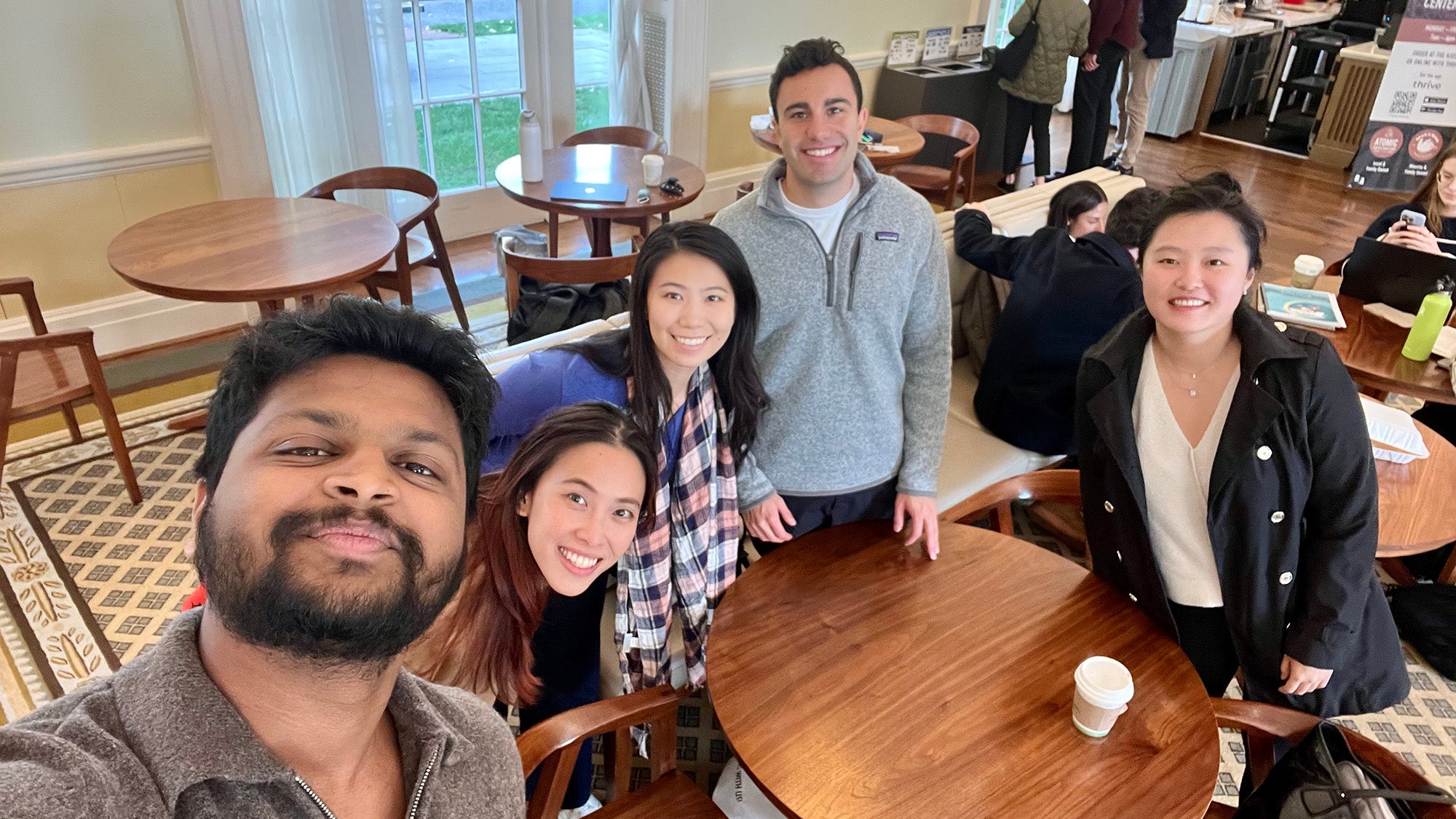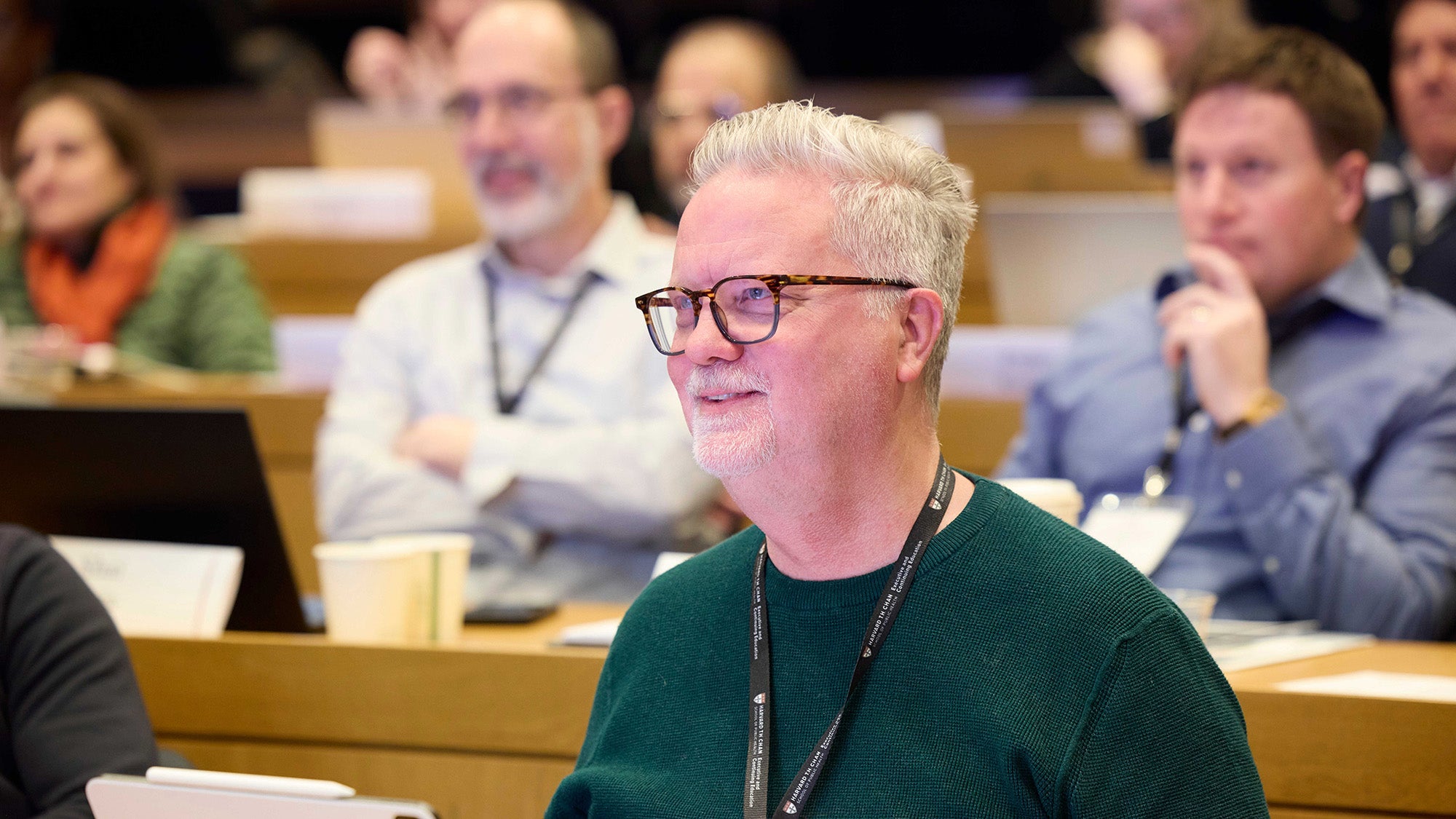Student ventures compete in Harvard President’s Innovation Challenge

Each year, teams of student entrepreneurs from across Harvard compete for funding in the President’s Innovation Challenge. Students from Harvard T.H. Chan School of Public Health are on two of this year’s 25 finalist teams: Shyrie Patel, MPH ’25, founder of Gurus Inc., and Linda Fei, SM ’25, of Lexi. In addition, Sabrina Ebengho, MPH ’25, received one of the Challenge’s Ingenuity Awards for her venture SAMI+.
The President’s Innovation Challenge is an annual competition for health care, social impact, and business ventures founded by Harvard students and alumni. Participants receive mentorship from the Harvard Innovation Labs (i-lab), and work toward the opportunity to pitch their ventures at the May 7 awards ceremony at Harvard Business School.
Following the final presentations, five ventures will receive grand prizes of $75,000, and five others will receive $25,000. The Ingenuity Awards—which recognize ventures at an earlier stage of development—have already been announced. The five students receiving these awards will receive $17,000 prizes at the ceremony. Gurus Inc. and Lexi were both previously awarded grants from the i-lab’s Social Impact Fellowship Fund.
Lexi and SAMI+ are also members of the 2025 cohort at Harvard HealthLab Accelerators, a resource for student entrepreneurs run jointly by Harvard Chan School and Harvard College’s Lemann Program on Creativity and Entrepreneurship.
Combating homelessness

Gurus Inc. aims to provide comprehensive support for people experiencing homelessness, former incarceration, or mental health challenges. Program participants receive housing in hotels, where they work onsite and receive education, mentorship, and support services. It is already up and running at two hotels in Kansas and Oklahoma, serving more than 450 people.
Patel, a dentist and global health researcher, was inspired by her own experiences with homelessness to launch Gurus Inc, which she hopes to grow into a nationwide network. “Ultimately, I hope our model will inspire a fundamental shift in how society approaches reintegration—recognizing that with the right support systems, everyone deserves and can achieve a second chance at stability, dignity, and purpose,” she said.
Reducing language barriers in health care
Lexi was founded by Harvard John A. Paulson School of Engineering and Applied Sciences students Linh Pham, Daniel Rodriguez, and Siddharth UR, who met Fei in a Harvard Business School course on innovating in health care. The multidisciplinary team, all from immigrant backgrounds, is working to reduce language barriers in the health care system through the development of an AI-driven medical interpretation service.
Fei is a resident physician in general surgery from Canada, where 4.7 million people—about 12.8% of the population—have limited English proficiency. “I’ve seen firsthand how language barriers can lead to delays and inequities in patient care,” she said. “My dream for Lexi is to build a world where no patient is left behind because of a language barrier, and where every person can understand, be understood, and receive timely high-quality health care.”
Improving maternal and child health
SAMI+ is enhancing prenatal care in the Democratic Republic of Congo, Ebengho’s home country. Working closely with community partners, it is training community health technicians and equipping them with portable, AI-powered ultrasound tools. The goal is to bring lifesaving scans directly to health facilities, ensuring healthier pregnancies and safer births. Ebengho’s focus is on remote rural communities, especially in areas like her home province of Équateur, which has the second-highest mortality rates in the country.
“I’ve lost loved ones due to the lack of—and inadequate access to—quality obstetric care. These are not isolated incidents; they reflect a deeply rooted systemic crisis,” Ebengho said. She said that she sees health entrepreneurship as a way to innovate and strengthen health systems in areas where better care is urgently needed. “My dream is to scale this venture and adapt it to diverse contexts and evolving maternal and child health needs in the DRC, across sub-Saharan Africa, and beyond.”
Update: Gurus Inc. was one of the grand prize winners at the May 7 awards ceremony.


